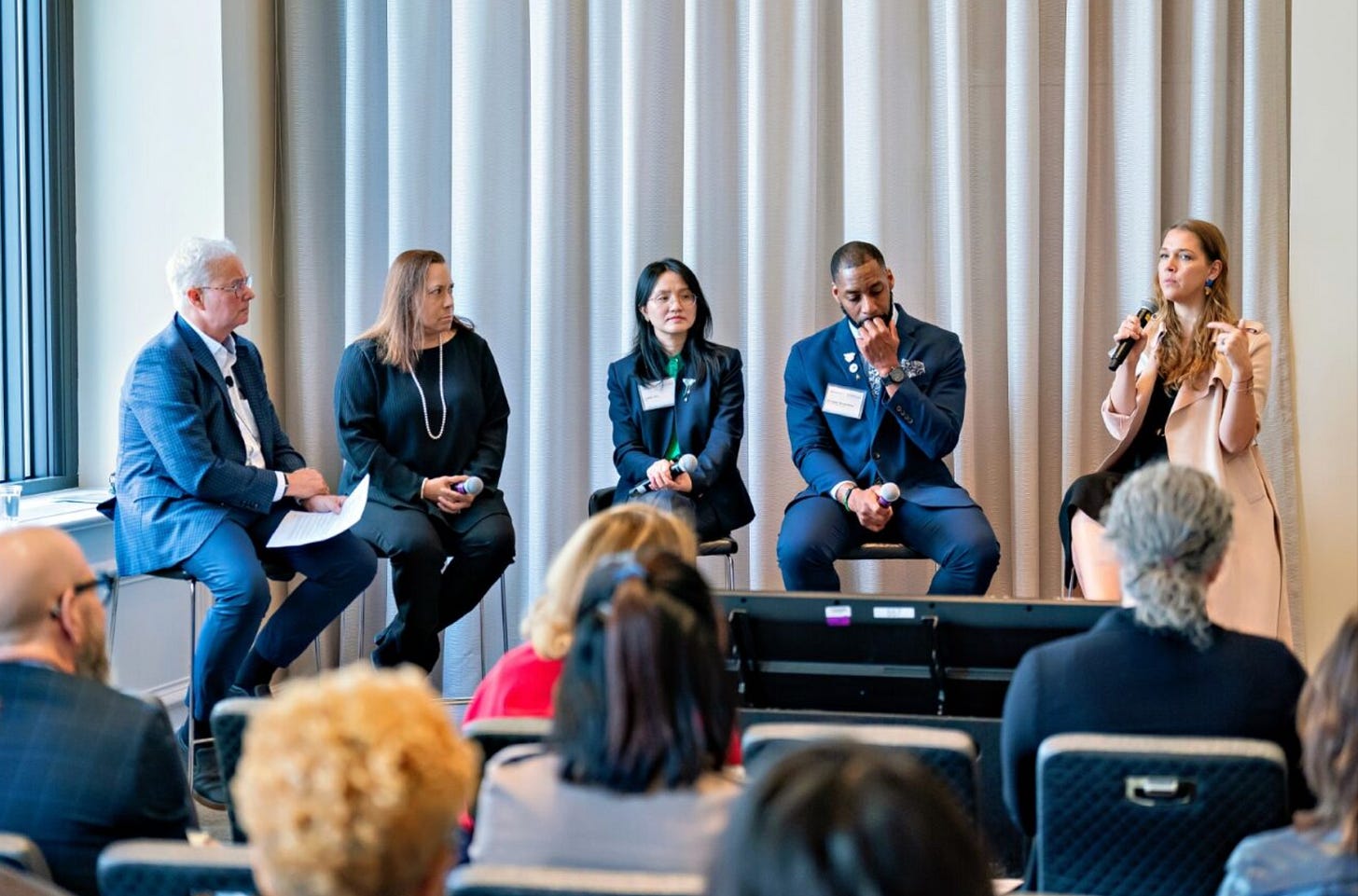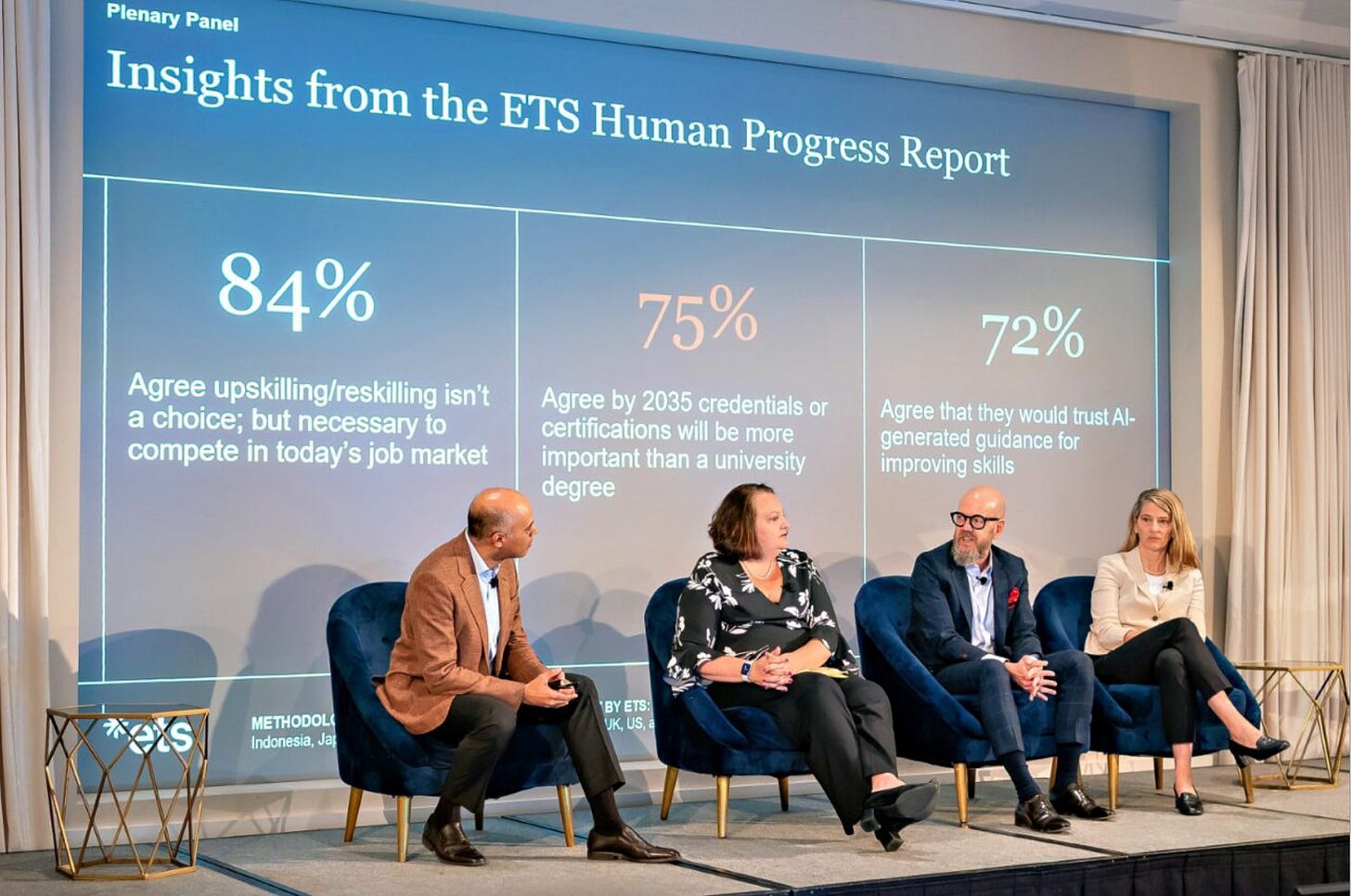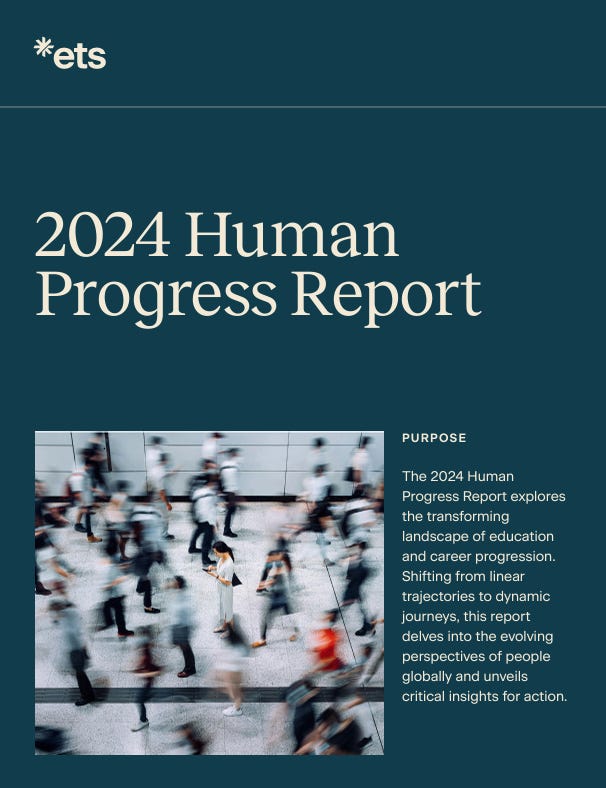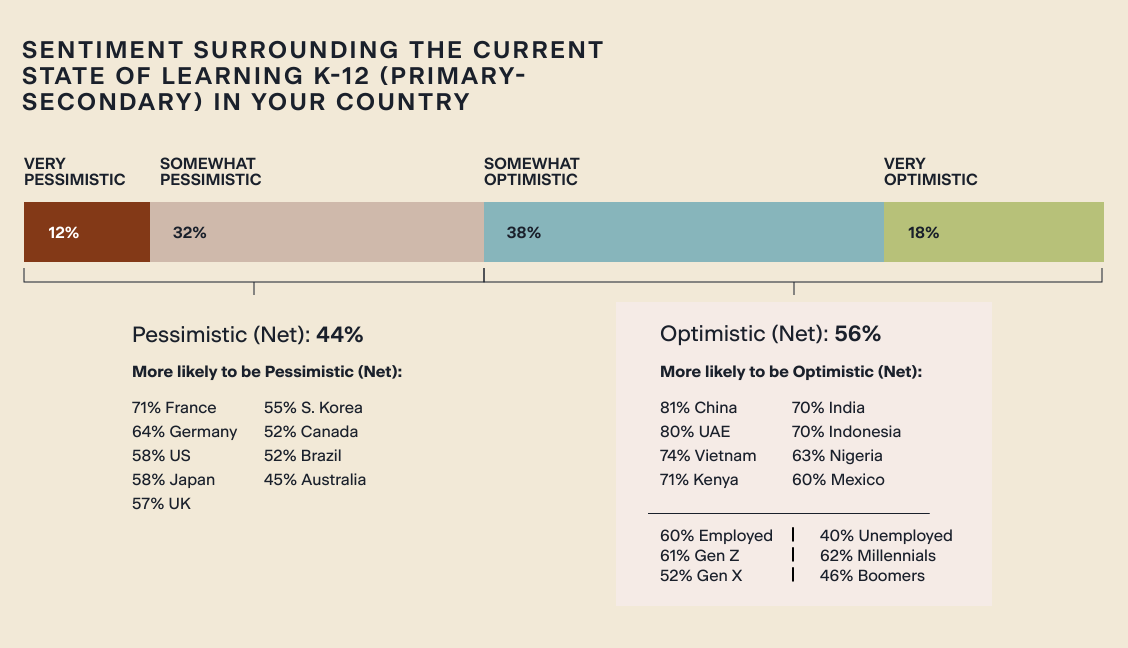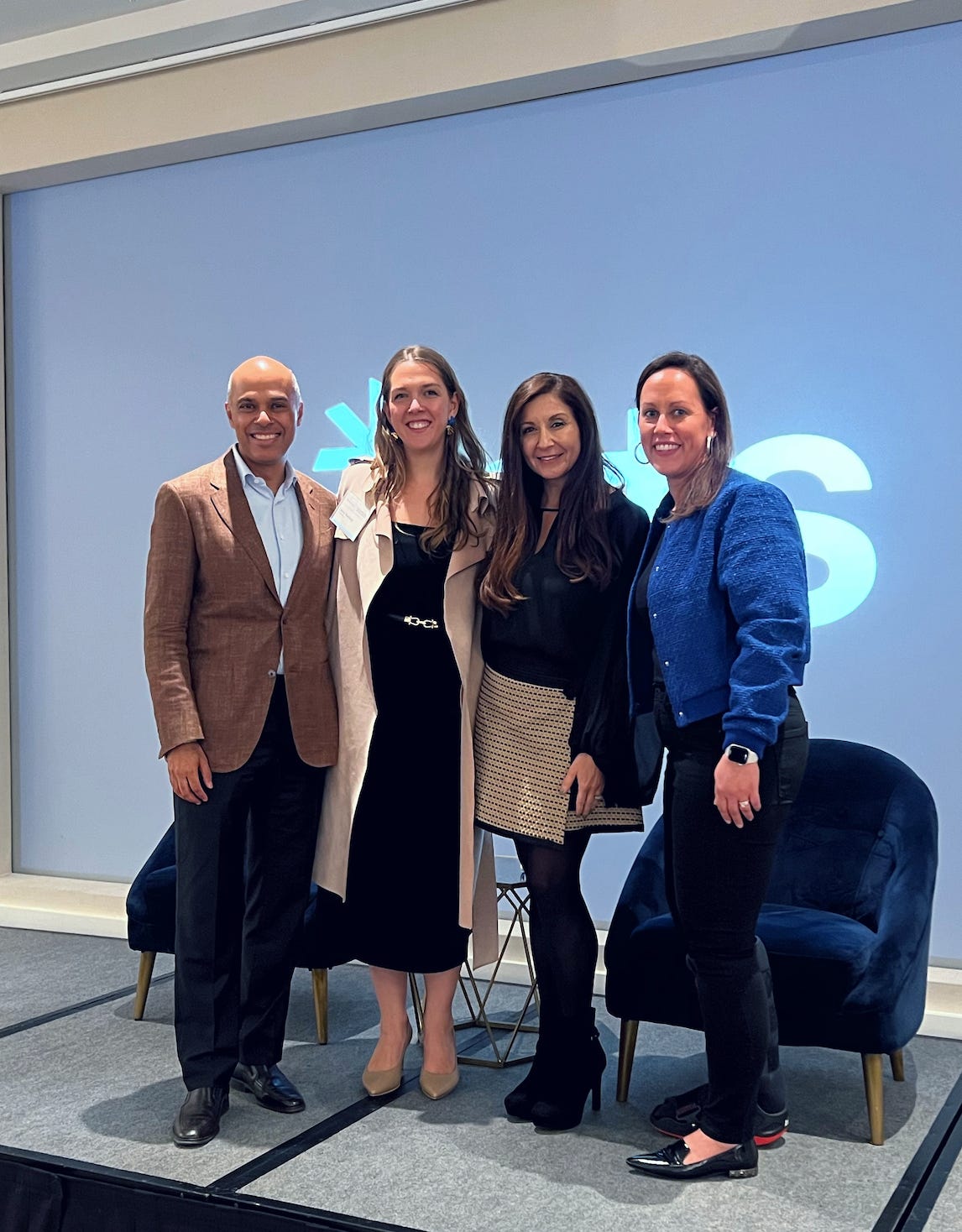ETS' 2024 Human Progress Report: AI and the Dynamics of the New Learning Economy
A new landmark study measuring education, upward mobility, and skill development across 17 countries
In a world where black swan events are omnipresent and financial instability is constant, what is the common denominator you can count on? We partnered with ETS to find out.
ETS’s “2024 Human Progress Report" examines the transforming landscape of education and career progression, shifting from linear trajectories to dynamic journeys. This report delves into the evolving perspectives of global citizens and unveils critical insights for action. This report surveyed 17,000 respondents from 17 countries, including Mexico, Brazil, Nigeria, Kenya, India, Vietnam, China, Indonesia, Canada, the United States, the United Kingdom, France, Germany, UAE, South Korea, Japan, and Australia. Designed to establish an annual baseline, this index tracks the evolving landscape of human progress and invites collaboration to address global disparities.
Find the full report here and its coverage in Fortune here
John and I were also privileged to participate in the ETS Convening: Ethical AI and the Future of Skills event in Washington DC on April 25th, featuring thought leaders and pioneers in education, skill development, career readiness and AI. These experts are working to reimagine the bridge between education and workforce skills. Insider Higher Ed covered the event here.
Key Takeaways from ETS Convening: Ethical AI and the Future of Skills:
AI: The New Workforce Architect: As AI reshapes job roles and industries, our focus shifts from mere adaptation to mastering AI literacy and integration. The real question is not if AI will replace jobs, but how we will redesign our work around AI's capabilities.
72% of global respondents say that they would trust AI generated guidance for improving skills, and 66% say they would trust in a learning assessment created or scored by AI.
The Lifelong Learner’s Economy: In a world where job roles are ephemeral, continuous learning becomes the new stability. The future belongs to those who can learn, unlearn, and relearn with agility.
80% of global respondents identify themselves as "lifetime learners," while 88% believe continuous learning is essential for success today, and 86% agree that it is necessary for financial stability.
80% agree, “AI will amplify the necessity for career shifts, upskilling, and self-reinvention.”
The Human Advantage: In an automated world, the most sought-after skills are those machines can't emulate: empathy, creativity, and interpersonal dynamics. Our humanity is not obsolete but our greatest asset. How do we track, measure, and value these skills?
85% of respondents advocate for measurements that go beyond cognitive to include social and emotional skills
83% agree, “AI will necessitate a reevaluation of the skills we consider essential in the workplace.”
Tailored for Success: Personalized learning isn't just a method—it's a movement. Embracing AI’s ability to customize education can unlock individual potential on an unprecedented scale.
78% of global respondents agree that AI can enhance learning assessments by tailoring them to individual needs.
72% agree that “AI will create new job opportunities that don't exist today.”
Beyond the Test Score: As we pivot from traditional assessments to holistic evaluations, the real measure of educational success is how well it prepares individuals for the unpredictable demands of the modern job market.
82% of global respondent believe that “learning assessments can bridge skills gap to provide equal opportunity for advancement (e.g., across different backgrounds such as socioeconomic, racial, gender, etc.)”
Find the full report here
Overall Key Takeaways from the Human Progress Report:
Degrees Dethroned? Skills Now Rival Traditional Education: The traditional 4-year degree is under scrutiny. This shift reflects growing concerns about the rising costs and diminishing returns of conventional higher education.
78% of respondents believe “By 2035, evidence of new skills acquired will be as valued as a university degree.”
75% of respondents believe “In the future, credentials or certifications will be more important than a university degree.”
Breaking Barriers: The Economic Divide in Educational Access: Financial constraints remain a formidable barrier to both education and upskilling, with a perpetual cycle of money dictating access to learning.
71% of respondents view quality education as a privilege accessible only to specific groups, emphasizing the need for more inclusive educational models.
Funding Futures: The Triad Transforming Education: The future of education and work lies in robust public-private partnerships. 84% of respondents desiring easier access to quality education, are looking to government funding, technological advancements, and corporate sponsorships as critical for educational reform.
84% agree“I wish it was easier to access quality education in my country.”
"Technology has the potential to democratize access to education, leveling the playing field for learners around the world."–Lorraine McMillan, Director, Vision Fund
Skills As Currency: The emphasis is shifting towards skills that align with current market demands. According to OECD’s Andreas Schleicher, the relevance and quality of skills are key differentiators for future success.
84% of respondent say, “Upskilling or reskilling isn't a choice, it's a necessity to compete in today's job market.”
76% of respondents agree “I envision higher education in the future not as a fixed duration (like 3 or more years) but as frequent, short bursts of upskilling throughout a career.”
Optimism and Pessimism Divided by Geography: While optimism about the future state of learning by 2035 is significant globally, there's a notable divide. People in high-income countries express more pessimism, possibly due to dissatisfaction with current educational disruptions and an inability to adapt as seamlessly as those in middle-income nations.
What to think about: This exploration into human progress through education reflects our collective aspirations and the stark realities of our societal structures. The move towards lifelong learning isn't just a trend but a necessity, challenging us to rethink how we educate and adapt. For parents and learners alike, the message is clear: embrace learning as an ongoing journey.
“Learning how to learn is probably the key skill. The half-life of skills is getting shorter as more and more technology comes in. The most important ability is learning how to use the new tools in the way that is resonant with being a human and the job to be done.” Eric Lavin, Partner, Avalanche VC
The ability to learn and adapt swiftly is paramount, not just for personal or professional growth but for contributing to a resilient, adaptable society. As we consider these findings, let’s engage in dialogue and work towards an inclusive, adaptable future of learning, shaping the world of tomorrow through education.
Thank you to our amazing partners and champions of this work at ETS- Amit Sevak, Michelle Froah, Christine Betaneli and Gwendolyn Galloway.
Shout out to Marie Aloi, Abbey Lunney, Amanda Christman, Tippy Ulicny and Paul Johnson for bringing this report from its conception phase into the world.
3 Links
It’s the End of the Web as We Know It (The Atlantic)
What Is a Magazine Now? (NYTimes)
Curiosity is contagious; if you like this newsletter, please share it!!
Penned by Libby Rodney and Abbey Lunney, founders of the Thought Leadership Group at The Harris Poll. To learn more about the Thought Leadership Practice, just contact one of us or find out more here.





